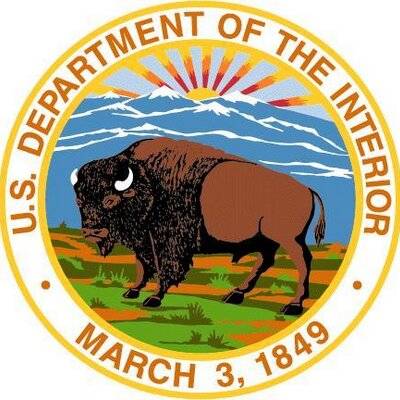Interior Department Announces Infrastructure Investments for Desalination, Water Reclamation and Reuse Projects

Bipartisan Infrastructure Law funding will further support water reliability in Western communities
WASHINGTON — The Department of the Interior today announced three funding opportunities available to help Western communities create or expand clean, new water sources. The selected projects, which include desalination, and water reclamation and reuse projects, will be funded through investments in the Bipartisan Infrastructure Law and, when enacted, fiscal year 2022 appropriations.
These funds will provide assistance to drought-impacted communities as the federal government collaborates with states, Tribes and other water users to develop longer-term solutions to climate change.
“Drought, climate change, and less reliable water resources year-after-year give rise to the need to continue to develop new and innovative solutions to address the challenges we face” said Assistant Secretary for Water and Science Tanya Trujillo. “The Bipartisan Infrastructure Law funding available for these funding opportunities provides the resources to expand our efforts and develop lasting solutions across the West.”
“Water reuse and desalination are important tools to building resiliency throughout the West, and these funding opportunities support water providers in developing new and clean sources of water to improve their water supply reliability for their communities,” said Reclamation Commissioner Camille Calimlim Touton. “Through our traditional sources and now funding from the Bipartisan Infrastructure Law, we can bring more resources to support Western communities.”
The Bipartisan Infrastructure Law contains $1 billion over five years for water reclamation and reuse projects, including $550 million for the Title XVI Water Reclamation and Reuse Program and $250 million for water desalination projects.
For more than 100 years, Reclamation and its partners have developed sustainable water and power solutions for the West. These funding opportunities are part of the Department of the Interior’s WaterSMART Program, which focuses on improving water conservation and reliability, while helping water resource managers make sound decisions about water use.
Find out more information at Reclamation’s WaterSMART program webpage.
ADDITIONAL INFORMATION ON HOW TO APPLY FOR FUNDING:
Two of the funding opportunities released today are for Title XVI projects, including one funding opportunity for projects authorized by Congress in standalone legislation and one funding opportunity open to projects eligible under the Water Infrastructure Improvements for the Nation (WIIN) Act.
Information on these funding opportunities is available at www.grants.gov. Applications for each funding opportunity are due at 4 p.m. MDT on March 15. Lists of Title XVI Water Reclamation and Reuse projects authorized by Congress or eligible under the WIIN Act are available online on Reclamation’s WaterSMART webpage. The funding opportunity numbers are R22AS00116 and R22AS00115, respectively.
The third is a Desalination Construction Projects funding opportunity for ocean and brackish water desalination projects eligible under section 4009(c) of the WIIN Act, P.L. 114-322 to request cost-shared funding. The projects must be in the Western United States or U.S. territories and have submitted a feasibility study to Reclamation for review. The funding opportunity is R22AS00117.
All three funding opportunities invite sponsors of eligible projects to apply for up to 25% of the costs of planning, design, and construction scheduled for the next three years. For WIIN Act Title XVI projects and WIIN Act Desalination Construction projects, Reclamation has increased the total amount of funding for any one project to $30 million. In contrast, the maximum amount of funding for a Title XVI project authorized by Congress is set by statute and is typically $20 million.
About the U.S. Department of the Interior
The Department of the Interior (DOI) conserves and manages the Nation’s natural resources and cultural heritage for the benefit and enjoyment of the American people, provides scientific and other information about natural resources and natural hazards to address societal challenges and create opportunities for the American people, and honors the Nation’s trust responsibilities or special commitments to American Indians, Alaska Natives, and affiliated island communities to help them prosper


